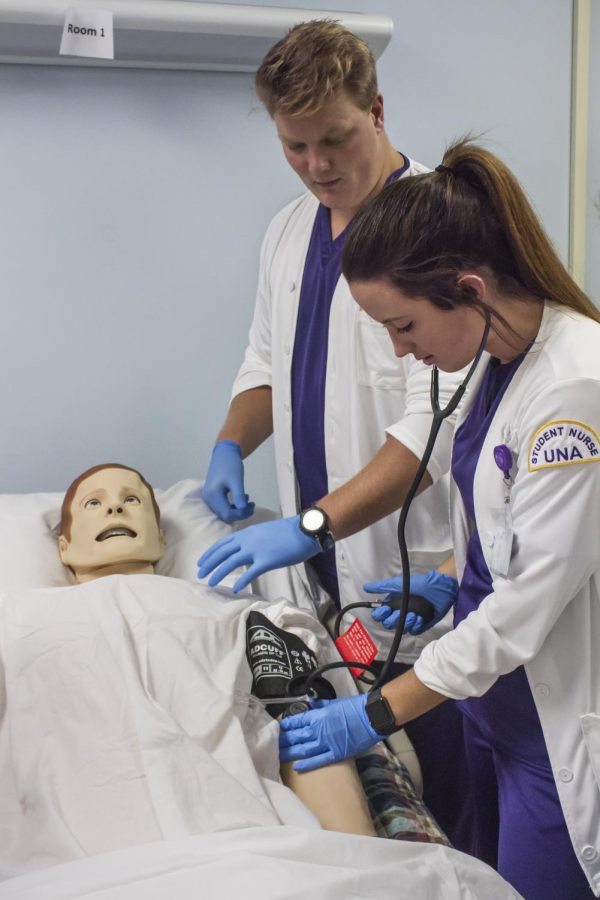UNA nurses stand strong despite Alabama rank
September 13, 2017
A 2017 study by financial website WalletHub gave Alabama the rank of fourth worst state for nurses.
The factors included health-care facilities per capita and average monthly starting salary for nurses (adjusted for cost of living), which Alabama respectively scored 40th and 33rd.
Helen Coronel, assistant professor of nursing, said the results of the survey did not surprise her very much because of the way Alabama nurses are treated.
“Alabama traditionally does not pay their registered nurses well,” she said. “Hospitals are able to set whatever they want as the RN base pay.”
She said advanced practice nurses are also unable to become licensed in Alabama without a cooperative agreement with a physician.
“Nurse practitioners do not practice to the full extent of their license and do not practice independently,” she said. “Many will not practice in Alabama due to these restrictions.”
Despite this, support for nursing at UNA does not seem to be slowing down.
Nursing was the university’s most popular major fall 2016. Also, the Anderson College of Nursing scored the highest pass rate on the National Council Licensure Examination for the 2016-17 year.
Despite the survey bringing a negative picture for Alabama nurses, there are other factors that the survey may not have included, said Vicki Pierce, dean of the Anderson College of Nursing,
“If you compare Alabama nurses to other people in the state of Alabama, (they) live well,” she said. “Many nurses do not work in hospitals. So, (the facilities per capita ranking) is very misleading.”
Senior Kara Shults said the ranking is not necessarily bad and should be used to help the state improve in the area of nursing.
“I think (rankings) should be a guide to show how the state can improve the workforce,” she said. “Alabama definitely has some areas to improve on. (However), I don’t think the survey would discourage anyone who wants to work in Alabama bad enough to not work in the state.”
Pierce said she does not give the overall study much merit.
“(The survey) is there for statisticians to have a job,” she said. “If I was a new student, and I was interested in a nursing career, this would not deter me from pursuing my career.”
Pierce said out of the 2016-17 Anderson graduates, 92 percent have since reported back with a job.
“A lot of students worry about having to graduate and get out and find a job when they finish their degree, (but) it is not the case for nursing students,” she said.
Senior Payton Tanner said while a career in nursing may not be easy, this does not mean the job will not work out well.
“The great thing about nursing is that you have so many different options to choose from,” she said. “You can work in a hospital, a clinic, in home health, or even join the military. So, you may not start off at your dream job, but that doesn’t mean that there aren’t jobs out there.”












